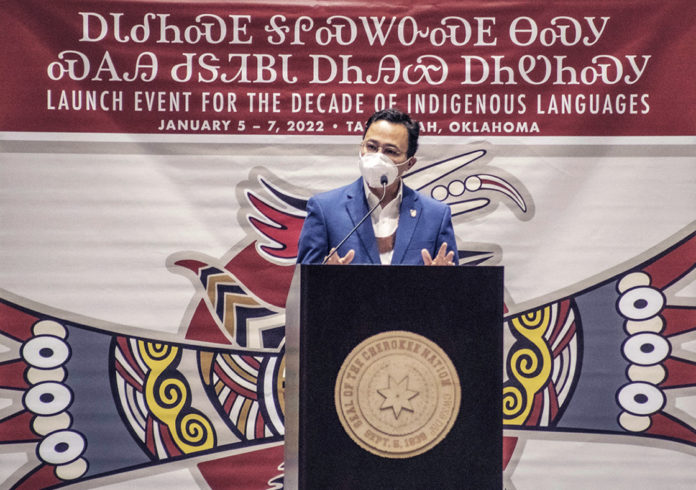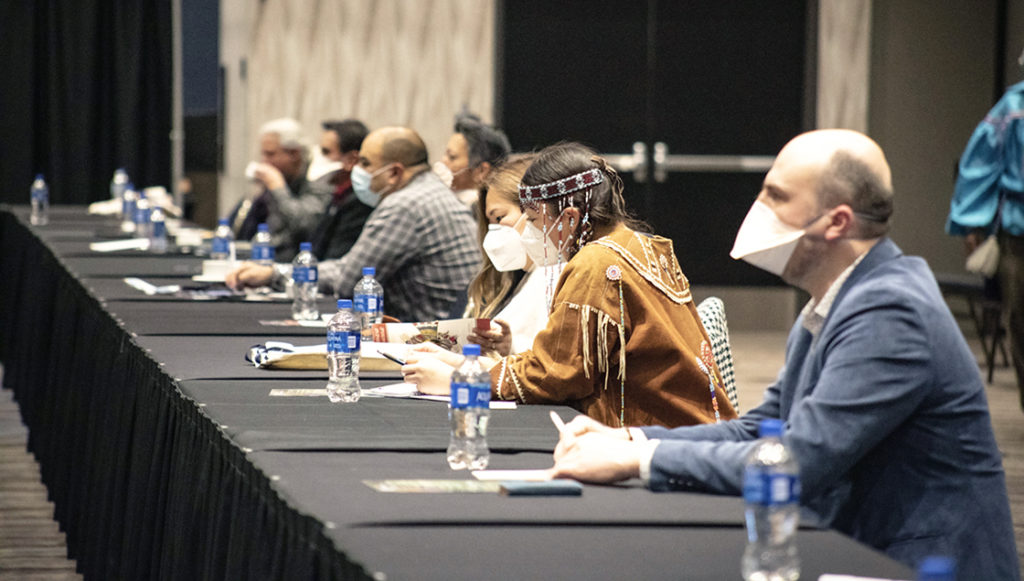
TAHLEQUAH, OK – The Cherokee Nation recently hosted the launch of the United Nations’ International Decade of Indigenous Languages in Tahlequah, OK. The three-day event featured language leaders from around the world, both in person and virtually, to share information and best practices on language preservation efforts.
The 10-year initiative continues the work of the United Nations General Assembly’s 2019 International Year of Indigenous Languages, drawing attention to the critical loss of Indigenous languages and the urgent need to preserve, revitalize and promote them.
Cherokee Nation Principal Chief Chuck Hoskin Jr. opened the event with a welcome, and Special Envoy for International Affairs and Language Preservation Joe Byrd offered a blessing.
“The International Decade of Indigenous Languages is a huge endeavor, and I think to kick it off in the Cherokee Nation is something special,” said Chief Hoskin. “The Cherokee Nation continues to take the lead when it comes to language revitalization, but by working together with other language warriors, working toward the same goal, it helps us remember that this effort that we are undertaking really is a global effort. If we are successful in our efforts, we will do a great deal to restore the languages of Indigenous peoples around the world. But I also think if we are successful over the course of the next decade, we will bring healing in a very meaningful way to a world that is sorely in need of it.”

Before colonization, the world had around 10,000 languages. Now, some research suggests there are only 6,500 languages left, with an average loss of two per week. Without efforts to save and perpetuate these languages, it is estimated that by 2060, 80 percent of the earth’s population will only speak 28 languages.
“When a language dies, you lose a world,” said Cherokee Nation Language Department Executive Director Howard Paden. “We have pushed for the Cherokee language, and in pushing for our language, we have seen the needs of other Indigenous languages and the work they are doing. If we can borrow different methodologies and different techniques from one another, it allows all of us to have a bigger launch pad to help save our languages, and that’s what this event is all about.”
The event included presenters from various Indigenous language programs sharing information on successful initiatives. The event also featured cultural demonstrations from Indigenous peoples celebrating their language. A number of Indigenous languages were represented during the event including the Māori language from New Zealand, the Pertame language from Australia, and languages from Russia, France and other countries.
The goal of the gathering was to highlight the ongoing, 10-year initiative to triple the amount of Indigenous language groups that are rebuilding their speaker populations.
















































